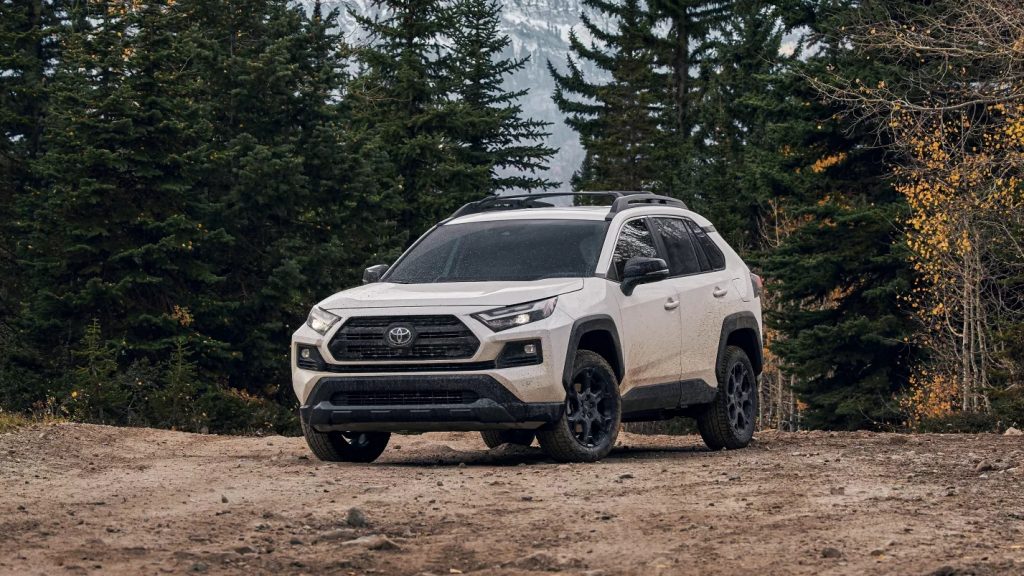The year 2023 witnessed a historic milestone in the automotive industry as the Tesla Model Y claimed the title of the world’s best-selling car, marking the first time an all-electric vehicle ascended to this position. With an impressive sales figure of 1.22 million units, the Model Y not only outpaced its competitors but also underscored the accelerating global shift towards electric mobility.
Introduced in March 2019, the Tesla Model Y achieved this feat in just three years, excluding the disruptive year of 2020 when global markets faced unprecedented challenges. Its rapid rise to prominence highlights Tesla’s ability to resonate across diverse markets, spanning North America, Europe, and China.


Following closely behind, Toyota’s RAV4 secured the second position with 1.075 million units sold, driven by strong demand in China and North America. Honda’s CR-V clinched third place, reinforcing Honda’s robust performance across Asian and North American markets.
Toyota maintained a formidable presence in the top 10 with multiple models:
- The Corolla Sedan and Corolla Cross secured fourth and fifth places respectively, reflecting their enduring popularity and broad consumer appeal.
- The Camry, renowned as the world’s most favoured mid-size sedan, secured sixth place with 651,000 units sold, with the new-gen model significantly boosting its appeal.
The iconic Ford F-150, celebrated for its dominance in the US and Canadian markets, ranked seventh despite its limited availability elsewhere. Its position underscores the enduring preference for pickup trucks in these regions.
Tesla’s Model 3, capturing tenth place with 509,000 units sold, demonstrated sustained demand bolstered by recent updates, affirming Tesla’s dual success in both SUVs and sedans within the electric vehicle segment.
Chinese automaker BYD made significant strides, placing three models in the top 25:
- The Qin, a compact sedan with an electrified powertrain, secured 12th place with 474,000 units sold.
- The Song Plus, a mid-size SUV, achieved 19th place with 370,000 units, reflecting its growing popularity.
- The Yuan Plus (Atto 3) saw the largest percentage increase from the previous year, landing 24th place with 356,000 units sold.
European entries were represented by Volkswagen:
- The Polo hatchback and Jetta sedan secured 20th and 21st places respectively, highlighting regional preferences and market strategies.
The diverse lineup within the top 25 exemplifies the resilience and adaptability of the global automotive industry amidst evolving consumer preferences and regulatory landscapes. As the world continues its transition from traditional combustion engines to zero-emission vehicles, the Tesla Model Y’s historic achievement serves as a pivotal moment in automotive history.
The complete list of the top 25 best-selling cars in 2023:
- Tesla Model Y – 1,223,000 units
- Toyota RAV4 – 1,075,000 units
- Honda CR-V – 846,000 units
- Toyota Corolla Sedan – 803,000 units
- Toyota Corolla Cross – 716,000 units
- Toyota Camry – 651,000 units
- Ford F-150 – 624,000 units
- Toyota Hilux – 605,000 units
- Nissan Sentra – 534,000 units
- Tesla Model 3 – 509,000 units
- Honda Civic Sedan – 479,000 units
- BYD Qin – 474,000 units
- Nissan X-Trail – 462,000 units
- Honda Accord – 451,000 units
- Hyundai Tucson EWB – 423,000 units
- Chevrolet Silverado 1500 – 412,000 units
- Hyundai Elantra – 399,000 units
- RAM 1500 – 374,000 units
- BYD Song Plus – 370,000 units
- Volkswagen Polo HB – 364,000 units
- Volkswagen Jetta – 362,000 units
- Mazda CX-5 – 357,000 units
- BYD Yuan Plus (Atto 3) – 356,000 units
- Suzuki Swift – 354,000 units
- Honda HR-V – 336,000 units
The diverse array of models underscores the global automotive market’s trajectory towards electrification and sustainability, setting the stage for continued innovation and consumer-driven evolution in the years to come.

